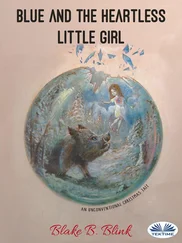Annie Randall White - The Blue and The Gray
Здесь есть возможность читать онлайн «Annie Randall White - The Blue and The Gray» — ознакомительный отрывок электронной книги совершенно бесплатно, а после прочтения отрывка купить полную версию. В некоторых случаях можно слушать аудио, скачать через торрент в формате fb2 и присутствует краткое содержание. Жанр: foreign_prose, История, foreign_edu, foreign_antique, на английском языке. Описание произведения, (предисловие) а так же отзывы посетителей доступны на портале библиотеки ЛибКат.
- Название:The Blue and The Gray
- Автор:
- Жанр:
- Год:неизвестен
- ISBN:нет данных
- Рейтинг книги:3 / 5. Голосов: 1
-
Избранное:Добавить в избранное
- Отзывы:
-
Ваша оценка:
- 60
- 1
- 2
- 3
- 4
- 5
The Blue and The Gray: краткое содержание, описание и аннотация
Предлагаем к чтению аннотацию, описание, краткое содержание или предисловие (зависит от того, что написал сам автор книги «The Blue and The Gray»). Если вы не нашли необходимую информацию о книге — напишите в комментариях, мы постараемся отыскать её.
The Blue and The Gray — читать онлайн ознакомительный отрывок
Ниже представлен текст книги, разбитый по страницам. Система сохранения места последней прочитанной страницы, позволяет с удобством читать онлайн бесплатно книгу «The Blue and The Gray», без необходимости каждый раз заново искать на чём Вы остановились. Поставьте закладку, и сможете в любой момент перейти на страницу, на которой закончили чтение.
Интервал:
Закладка:
"Praise de Lawd! Bress you for yore kindness."
The boy bowed courteously to the Colonel, and with a look of gratitude he passed out of the officer's tent, with the old man hobbling after him. As he approached Ralph he said, "Goodbye. We may meet again."
It was not all danger and dread with the boys in the army. Weeks passed swiftly, and fun reigned in camp. The gypsy life held charms for them such as no indoor employment could offer. The men were hardy and strong, and with light hearts talked of the battles yet in store for them. And when jests were exchanged, often after having come from a scene of carnage, it would be hard to believe that these same men were ready to respond at any moment if summoned by the long roll of the drum into action.
In the early part of the war many little conveniences were provided for the rank and file, among them being tents for shelter, which did not keep out the cold, however, and many a man died from disease who would have lived to fight, had he been properly housed. The second winter, however, many huts were put up, rough enough, but better calculated to withstand the cold than canvas.
Each company had a "cook tent" and a cook, generally selected from the men, the officers boasting a "cullered individual" who was always, according to his own account, a "perfeshunal." The culinary department was ever a point of interest to the men, whose appetites were never so dainty that they failed to enjoy their daily rations. No soldier, no matter from what part of the North he came, ever turned up his nose at the beans, which were cooked in holes dug in the earth, and filled with hot embers, in which the iron pot containing them was buried and kept there all night.
To Bill Elliott fell the task of ministering to the hungry ones of his company, and many were the compliments he received.
"You can broil a chicken as good as any French cook," a man would coaxingly declare.
"Not a boughten one," Bill replied; "somehow those kind of chickens the sutler has on hand don't have the genooine flavor."
The hint was always taken, and alas, for the poor farmer who had a nice hen-roost, or a young porker in the sty. They had no regard for property rights, and though they were not supposed to forage, except under orders, yet the temptation was too strong to be resisted.
At such times the cackling of the fowls, whose quiet was disturbed, the melodious grunting of the pigs, who often led them a hard chase, and the laughter and shouting of the pursuing soldiers, made a scene of wild merriment never forgotten.
But Ralph could not see the funny side of these depredations. To him it was a clear wrong to take what did not belong to them. He never would join them in these expeditions, a course which exposed him to much ridicule for his "pious notions," but which had no effect upon him.
Often their zeal in this direction brought its own punishment. On one of these forays a long-legged, awkward fellow, who could outrun the fastest chicken, chased an anxious hen into a thicket, where the grass was long and rank. As he peered round for his game he spied a dozen or so eggs shining in the sun. "Ah," he said, "my lady hen is stealing a nest. Well, they look white and fresh, and I'll just confiscate them." His pockets were full of sweet potatoes, he had a brace ot chickens slung over his shoulders, he had lost his handkerchief, if he ever owned one, and the problem was how to hold possession of the coveted prize.
"I know how I'll fix it. I'll put them in my cap. I can carry them all right."
The eggs were tenderly deposited therein, and he started for camp. He heard the boys who were still engaged in the chase laughing boisterously, and saw Rob Douglass, one of the new recruits, with a rope tied to one of the hind legs of a monstrous pig, who was jerking him right and left, in quite an unmilitary fashion. Now he was nearly on the animal's back, and next he was measuring his length on the ground, but he never once released the rope, while the shouts and cheers of the boys who were watching the contest made Rob more determined than ever to land his prize at the cook's tent.
Zach Smith joined in the merriment and began to chaff Rob, whose face was grimy with perspiration, while his dust-covered clothes looked as though a good brushing and a few stitches would improve them materially.
Seeing Zach he called to him to help haul in the "critter." The latter started toward him, but Mrs. Piggie was of the same mind, for she turned quickly and ran between his legs. Zach lost his balance and fell, and as he instinctively shot out his hands to save his eggs his head struck them squarely, while the liquid streaming down his face and neck sent forth such an odor that the men, who had inhaled many strange ones since leaving home, voted unanimously that that particular one "beat anything on record."
Zach made his way back to his tent, followed by the jibes of his comrades, as he bade Rob, in very strong language, to settle the pig as best he could while he attended to disinfecting himself.
CHAPTER VI. ANOTHER BATTLE
"BOYS," said Lieutenant Graves, "we have our orders to turn out and show what we are made of. You know General McClellan has command of the Army of Virginia, and he thinks we've been rusting here long enough; so we're to help General Stone in drawing out the enemy. They've so far kept in hiding, and we've got to force them out into a square and open fight."
"The General thinks we're spoiling for a battle, doesn't he?"
"I suppose so. Anyway, we are to cross the Potomac at Conrad's Ferry and wake 'em up. General McCall has his hands full watching the river crossings, and we must help him do it." This was good news to most of the men, who had grown tired of inaction. The long summer had worn away, and Ralph had often slipped away from camp and run into the negro cabins near by, where he was sure of a nice piece of hoe cake, baked on the hearth. The garrulous darkeys liked to see Ralph coming, and many a question they put to him which he could scarcely answer, so little did he know of the true state of affairs.
There are few idle moments in camp, for the duties of the soldier are too numerous to afford him that leisure which permits of homesickness. He has letters to write home, old ones to read; then, too, his spare time is occupied in looking for something to eat which his knapsack doesn't hold—not because his rations are scanty, or he is hungry, but he grows tired of the regular diet. He is always doing duty, police or fatigue, and the perpetual drilling, all keep him busy.
Mending clothes became quite an art among the soldiers, and the manner in which some of them darned their stockings would reflect credit upon many a housewife who has the reputation of being an ex pert seamstress.
Wash day in camp was as important an occasion as it is at home, and preparations were made with as much regard to convenience as the surroundings would permit.
Ralph was very fond of running into old "Aunt Judah's" cabin, for her "pones" were especially toothsome. The old negress was not handsome—her black skin was shriveled and seamed with age; she was nearly blind, but she was an admirable cook.
"Massa," she said to Ralph one day, when she had filled his knapsack with smoking hot pone and luscious sweet potatoes, whose pulp was as golden as the sunflower's petals,—"I'se been pondering in my own min' and I kaint see what you all is fighting 'bout. Clar to goodness I kaint."
"We are fighting to make the Southerners come back into the Union."
"De Union? What you mean by dat?"
"The Union—the States. There are thirty-five States, and how many slabes does he own?"
"None at all. We don't have slaves up North."
"Don't hab slabes? Who totes your water and picks de cotton and hoes de fields?"
Читать дальшеИнтервал:
Закладка:
Похожие книги на «The Blue and The Gray»
Представляем Вашему вниманию похожие книги на «The Blue and The Gray» списком для выбора. Мы отобрали схожую по названию и смыслу литературу в надежде предоставить читателям больше вариантов отыскать новые, интересные, ещё непрочитанные произведения.
Обсуждение, отзывы о книге «The Blue and The Gray» и просто собственные мнения читателей. Оставьте ваши комментарии, напишите, что Вы думаете о произведении, его смысле или главных героях. Укажите что конкретно понравилось, а что нет, и почему Вы так считаете.











